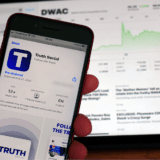DHS Still Tracks Disinformation Campaigns – Opponents Rage, but May Miss the Bigger Picture
 Three months after disbanding its controversial Disinformation Governance Board, the Department of Homeland Security is still working with big social media companies to track and combat international disinformation efforts. That’s the claim made by The Intercept, a news website that often focuses on contentious government issues.
Three months after disbanding its controversial Disinformation Governance Board, the Department of Homeland Security is still working with big social media companies to track and combat international disinformation efforts. That’s the claim made by The Intercept, a news website that often focuses on contentious government issues.
To fully understand why the issue is controversial, some background is needed. On April 27, 2022, the Department of Homeland Security acknowledged it had been operating a “Disinformation Governance Board” for about two months. The panel was focused on the spread of misinformation that could be harmful to the nation, while analyzing ways to police it. The general idea was to track and mitigate organized efforts to promote any misinformation that might threaten U.S. interests. But after public backlash, the board was paused in late May, then disbanded in August.
But that didn’t stop the department’s efforts. The Intercept’s article was triggered by their review of a draft copy of the DHS’s Quadrennial Homeland Security Review. (That’s the department’s capstone strategy document, which, by federal law, is updated every four years.) The document outlines DHS’s strategy and priorities for the coming years.
Since some of those topics remain controversial, some government watchdogs and media outlets quickly claimed the department’s disinformation tracking effort could become a way to promote the government’s control of free speech in America. For example, the Heritage Foundation stated, in its coverage of The Intercept report, “These relationships reflect a coordinated campaign to promote a certain definition of truth and solidify the power of the Biden administration.” The Washington, DC-based conservative think-tank further called for legislative action, though no specific legislative approach was recommended.
The larger question: Is asking DHS not to track disinformation really a solution? It’s worth acknowledging that international disinformation campaigns are, often by design, national security issues. If a country like Russia is doing one thing, but running an online disinformation campaign claiming it’s doing something else, then the security of the United States and other nations can be at risk.
Even if one is opposed to any one group (like DHS) being an arbiter of what constitutes disinformation, there remains an ongoing need to understand how the sharing and promotion of false news and propaganda can affect the trust and stability of a nation.
It is shortsighted to make a blanket statement that DHS should not monitor disinformation efforts or ignore attempts to manipulate public understanding of verifiable truths. The challenge comes when a decision needs to be made on how to deal with international disinformation efforts. That should not be the domain of any one organization.
So when a group like the Heritage Foundation says a legislative remedy may be needed, that approach may not be wrong. DHS should continue to be a watchdog for disinformation campaigns, but they should not be the sole arbitrator of how to respond.
The need for a broader effort is clear. In fact, DHS itself issued a report on August 10, 2022, titled DHS Needs a Unified Strategy to Counter Disinformation Campaigns.
Hopefully that need can be addressed with an unbiased bipartisan effort.












